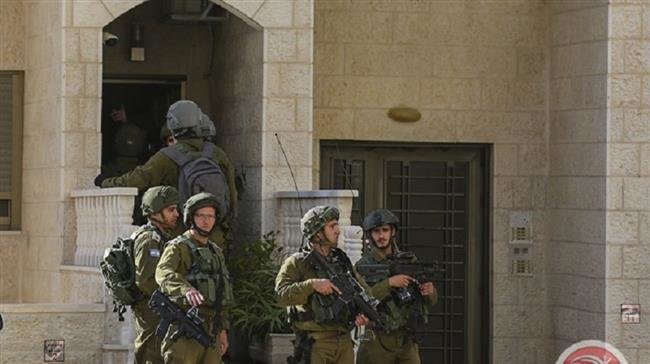
RNA - Wafa news agency reported on Monday that Israeli forces had broken into its offices and searched the premises, including checking the IDs of the workers present on site. They also searched the photography and editing offices.
According to employees, Israeli forces also inspected computer servers and the building's security cameras. The troops seized the security camera footage of a nearby building.
This came after a series of fierce clashes erupted a few hundred meters from the house of Palestinian President Mahmoud Abbas after Israeli soldiers entered Ramallah on Monday morning.
Several were wounded as Israeli forces used live ammunition to disperse Palestinian protesters in the area. The Palestinian Red Crescent said at least two were wounded by live Israeli fire, four injured by rubber bullets and another 20 as a result of gas inhalation.
The Palestinian Center for Development and Media Freedoms, also known as MADA, says hundreds of violations of media freedoms have been carried out by the Israeli regime since the start of the year.
Last month witnessed an escalation in the number and gravity of the attacks targeting media freedoms in Palestine in comparison with the preceding month. In November 2018, the number of attacks monitored by the MADA totaled 57 attacks, 49 of which were committed by the Israeli occupation.
In addition, the United Nations says violence and vandalism committed by Israeli settlers against Palestinians and their property have been on the rise since the beginning of the year 2018.
The UN Office for the Coordination of Humanitarian Affairs (OCHA) on Sunday made the news in a report published in its biweekly Protection of Civilians, comparing a weekly average of five attacks resulting in injuries with an average of three in 2017 and two in 2016.
Tensions between Israelis and Palestinians escalated in the occupied Palestinian territories after US President Donald Trump's recognition of Jerusalem al-Quds as Israel’s "capital" and relocation of the US embassy to the city.
On December 21 last year, the United Nations General Assembly overwhelmingly voted in favor of a resolution that calls on the US to withdraw its controversial policy shift.
Despite the vote, the US went ahead with the embassy transfer on May 14, triggering demonstrations in the occupied Palestinian territories, Iran, Turkey, Egypt, Jordan, Tunisia, Algeria, Iraq, Morocco and other Muslim countries.
Angered by Trump’s move, Abbas boycotted his administration, saying Washington was no longer qualified to serve as the sole mediator in the decades-long conflict with Israel, and that an international mechanism should be devised to replace the US in the so-called peace process.
847/940